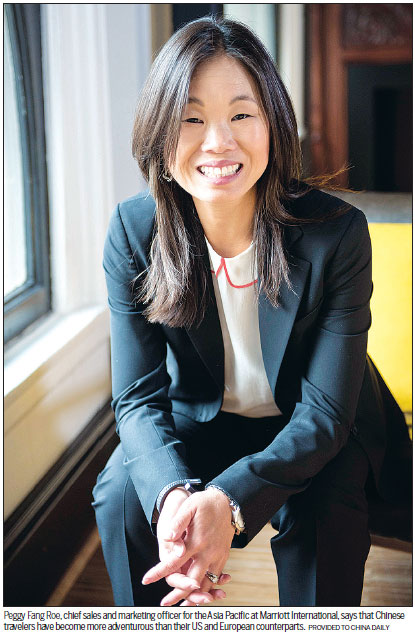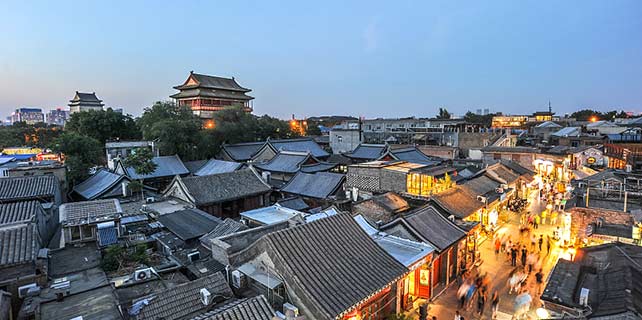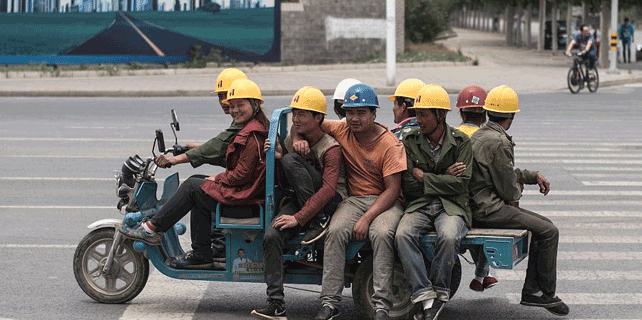Marriott poised for aggressive expansion

Hospitality giant, currently the largest in the world following its merger with Starwood, aims to open another 53 luxury hotels in China
Marriott International announced at the International Luxury Travel Market (ILTM) Asia fair in Shanghai earlier this month that it plans to double its presence in the Asia Pacific, and particularly in China.
Last September, Marriott International created the world's largest hotel company when it merged with Starwood Hotels and Resorts. The company now operates more than 6,100 properties, including eight luxury hotel brands such as Ritz-Carlton, W Hotels and Edition, a collaboration with Ian Schrager who is widely dubbed the "king of boutique hotels".
Seven of these eight brands were introduced to China by the end of 2016, building a network of 46 luxury hotels in the country. Ritz-Carlton Reserve is the only brand that has yet to enter China.
There are another 53 luxury properties in the hospitality group's development pipeline for China, accounting for almost half of the new luxury properties planned for the Asia Pacific region. Marriott International is preparing to open another 200 luxury properties around the world.
"The Asia Pacific region continues to see growing numbers of high net worth individuals, which, combined with dynamic economic growth, has created a strong increase in demand for luxury hotel experiences," said Peggy Fang Roe, chief sales and marketing officer for the Asia Pacific at Marriott International.
According to The Chinese Luxury Traveler 2017 Report, which was released during the four-day ILTM event by Shanghai-based Hurun Research Institute, the nation's wealthy spent an average of 380,000 yuan ($55,900) on family travel last year. The report is based on a survey of 334 affluent Chinese from 12 cities who have an average personal wealth of 22 million yuan.
However, Fang Roe notes that the luxury traveler of today is more defined by their behavior and attitude rather than personal wealth. "We definitely see that luxury travelers are becoming younger, but there is also the changing attitude toward the concept of luxury that is impacting the industry," she said.
Fang Roe pointed out that while the elderly generation might be more inclined to save and reward themselves with just one or two trips after retirement, the post 80s and 90s crowd have adopted a carpe diem attitude and are willing to spend all their monthly earnings on a luxury trip.
She attributes this trend to their exposure to globalization, accessibility to information and technology, as well as the need to express oneself.
Compared with their US or European counterparts, Chinese luxury travelers are believed to be more adventurous in terms of exploring the world, said Fang Roe.
"It's not about going to places far away, but to places others have never been to. It seems like luxury travelers today want to be the first to experience something, to be the trendsetter and leader. In contrast, the mindsets of travelers in other major luxury travel markets like the US still value high-end experiences. They may just hop from one Ritz-Carlton to another for a getaway," she said.
This shift in consumption behavior is also influencing Marriott's decision when it comes to choosing the Chinese cities to expand in.
"In China, we don't define cities as first- or second-tier cities. It's more about destinations. The best example is Sanya, Hainan province, where we have 23 hotels. No first-tier cities would have so many hotels," she added.
The other upcoming destination is Changsha, Hunan province, where the group is planning to add a JW Marriott and W Hotel. It currently operates a St Regis hotel in the city.
"I wouldn't have thought we could have one luxury hotel there. But because of the increasing focus on entertainment and food there, plus the accessibility of the city, we believe we could create a unique experience in Changsha," she said.
According to the Hurun Report, Ritz-Carlton has taken over the crown from Hilton as the favorite hotel destination among Chinese luxury travelers in 2016, with its popularity growing by 19 percent over the last two years. However, the report also noted that unlike airline memberships or preferences, hotel loyalty is more likely to change.
xujunqian@chinadaily.com.cn
















